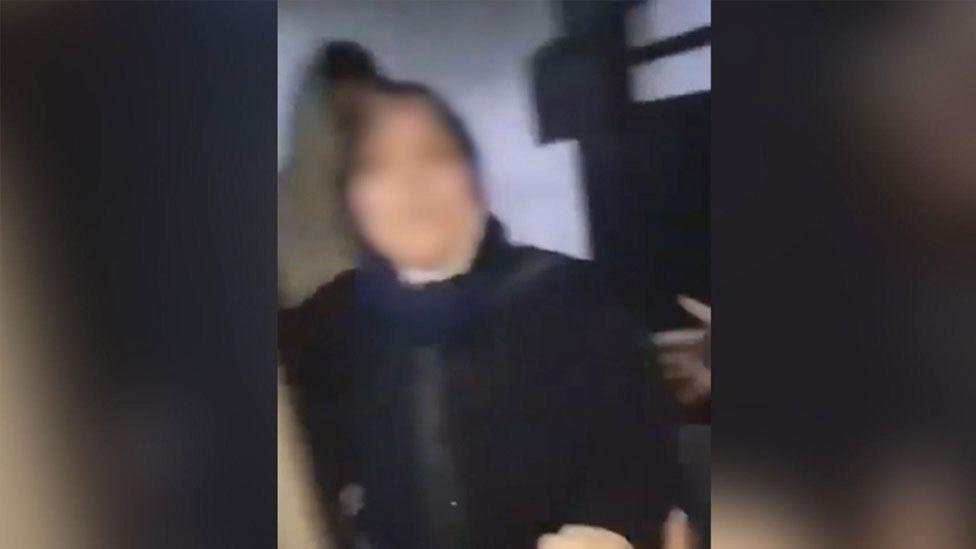'I hope my dad comes back... I have never heard his voice'
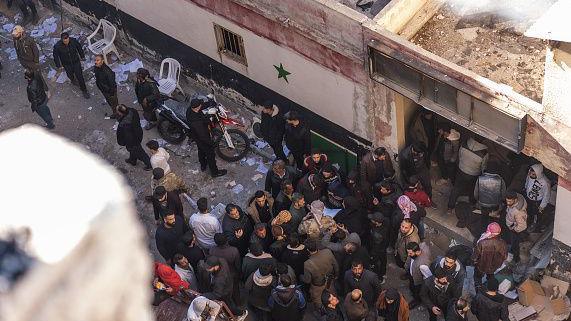
Crowds inside Saydnaya military prison hoping for information about former detainees
- Published
In the hours after the collapse of Bashar al-Assad's regime in Syria, hundreds have descended on the site which for many most encapsulated his oppressive rule: the Saydnaya prison.
The notorious military complex has been used to detain tens of thousands of people who fell foul of the Syrian government over the decades.
Among those searching for people who have vanished inside its walls was Jwan Omar, a Syrian living in Turkey.
He travelled to Saydnaya prison on Sunday to search for his father-in-law who disappeared in 2013, after being arrested by the regime who accused him of helping the opposition.
"I went to the prison and showed photos of my father-in-law but nobody recognised him," Omar told the BBC.
"My wife dreamed for 11 years of finding her father. Our hopes were raised when we heard the prisoners were released, but my wife has been crying since yesterday."
He was disappointed to be told that many prisoners had been moved to another location.
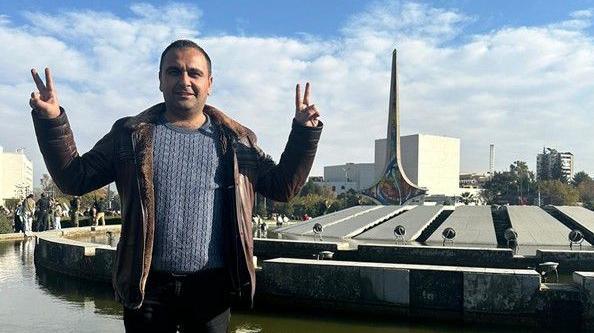
Dr Sharvan Ibesh witnesed chaotic scenes outside Saydnaya prison on Sunday night
Omar travelled to the prison with his friend Dr Sharvan Ibesh, chief executive of the Syrian aid group Bahar, who has been helping with the search.
Dr Ibesh described scenes of "chaos" at the prison, with hundreds of people trying to find their loves ones.
Dr Ibesh continued: "Hundreds of people were coming out of the prison and we were told we could not come in because so many people were getting in the way of the rescuers."
Syrian civil defence group, the White Helmets, has been searching for inmates at Saydnaya following accounts from prisoners of secret entrances to underground cells, though none have been found.
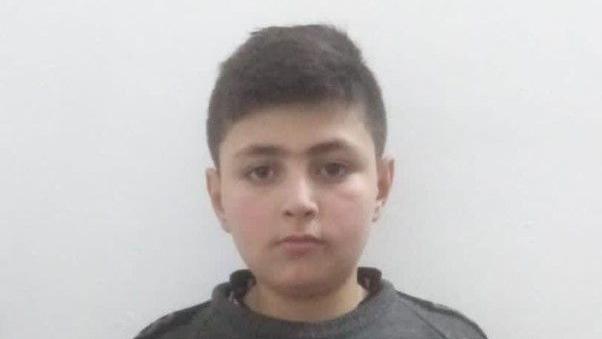
Mustafa was a baby when his father was arrested and taken to Saydnaya prison. "I hope he comes back. I have never heard his voice," he said.
Since the fall of Assad, many families have had renewed hope that they might find loved ones missing in prisons.
One such family is the Nadaf family from Idlib, who are currently searching for Thaer Nadaf who was arrested and sent to Saydnaya in 2011.
Thaer had two children - a baby and a two-year-old - at the time he was arrested.
His son Mustafa, who is now 12, told the BBC: "I hope he comes back. I swear I miss him, I have never heard his voice."
Thaer's mother Fayzah Nadaf said "nobody knows the reason why he was arrested".
She has sent her other son - Mohammad - to the prison in Damascus to find him.
A doctor who left the prison two months ago informed them that he was still alive. They believe he is being held in the underground section of the Saydnaya complex.
"I am looking forward to seeing my son again," Fayzah said. He has been missing for 12 years, and all the time I prayed that he could see his children again."
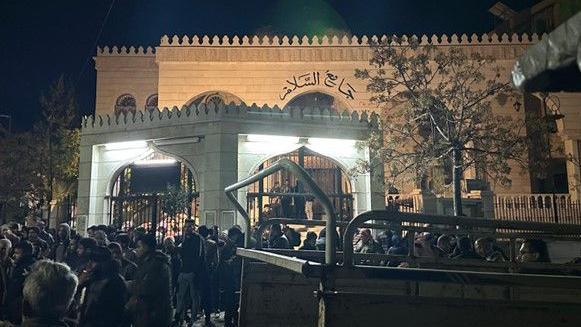
Al-Salam mosque in Damascus is a hub where prisoners are taken to try to find their families
A mosque 20km away is being used as a meeting place for released prisoners and their families.
When Ibesh visited there on Sunday, he saw several newly freed people clearly in a traumatised state, he told the BBC.
A group of people surrounded two men who had just been released, trying to help them.
"[They] had been held in the prison for several years and they were disorientated," Ibesh said. "They didn't even know the time zone."
"People around them were asking 'what's your name' and 'how old are you?', but they could not even answer those questions."
It was hard to tell how old they were from looking at them, Ibesh said, adding: "The men were totally lost, they were just staring ahead."
While there have been many family reunions since the prisoners were released, the search continues for many others.
The Assad regime imprisoned hundreds of thousands of political prisoners. The Turkey-based Association of Detainees and The Missing in Saydnaya Prison (ADMSP) group described Saydnaya as a "death camp".
Throughout the civil war, which began in 2011, government forces held hundreds of thousands of people in detention camps, where human rights groups say torture was common.
Related topics
- Published9 December 2024
